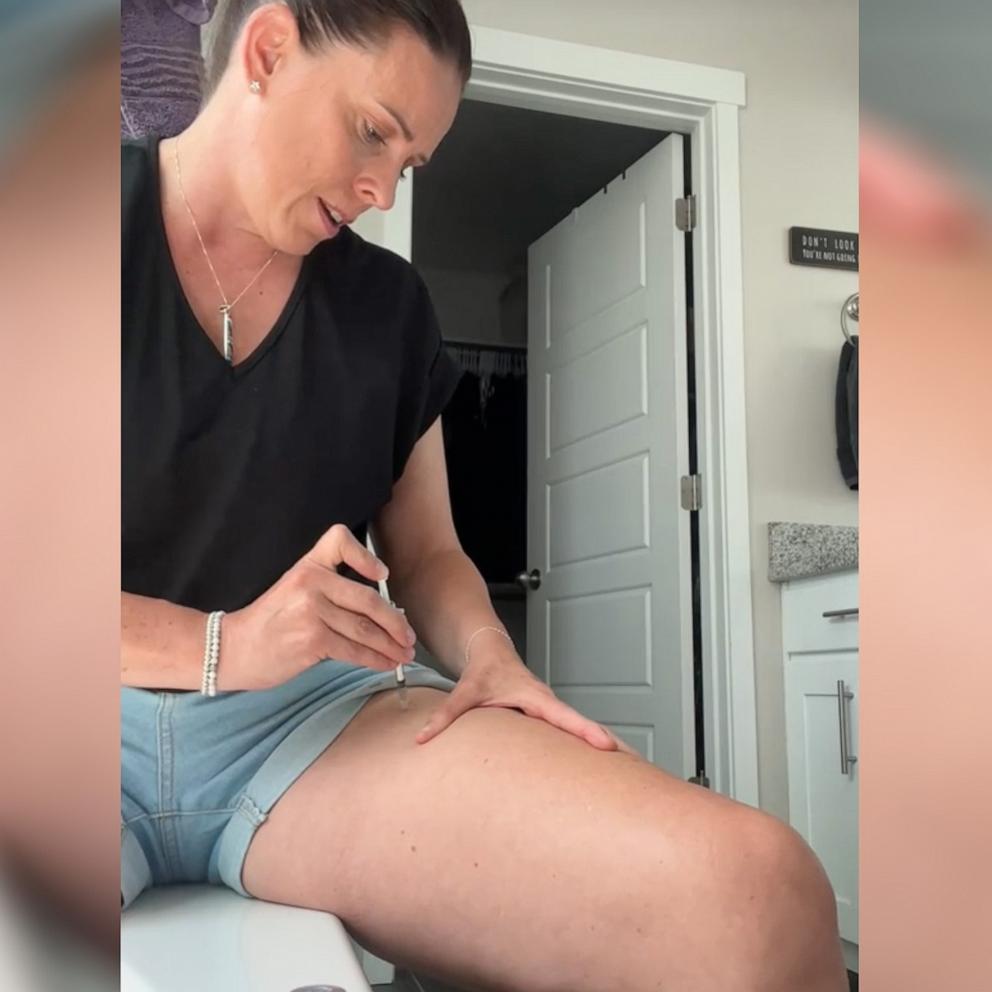Vulnerable children's education at risk if government shutdown takes place
Renee Kline's 4-year-old son attends the local Head Start program in Hampshire County, West Virginia, where he spends his days learning the alphabet and counting.
However, if the federal government shuts down next week, tens of thousands of kids, like him, will be forced to stay home.
As many as 10,000 children around the country would lose access to Head Start programs during a government shutdown, according to the White House, which as of publication, would start at midnight on Oct. 1.
Ten Head Start programs are due to receive funding on Oct. 1 and if that funding isn't available, they'd risk having to close their doors.
Childcare isn't readily available or affordable in Hampshire County, Kline says, if Head Start has to shut down, many people -- including her -- will have to stay home from work to care for their kids.

"That is a direct result of Congress not doing their job and not coming up with an agreement," says Tommy Sheridan, the Deputy Director of the National Head Start Association, a central association for the Head Start workforce and national voice of early childhood education. "This is really a punch to children and families who are already struggling and who really need the support provided by Head Start and Early Head Start."
Head Start is a free, federally funded early childhood development program, to promote school readiness for infants, toddlers and preschoolers from low-income households.
In the event of a government shutdown, Head Start programs would not be able to draw on funds to pay staff and operating expenses, says Lori Milam, Executive Director of the West Virginia Head Start Association, where over 7,000 children are enrolled in Head Start.
All Head Start programs are funded federally, but they all vary in how they receive funding and if they receive additional support from other programs. Some may not even be able to cover expenses for a week, according to Miliam.
Head Start also supports children with identified needs, such as physical and developmental delays, children in foster care and children experiencing housing instability. The federal government funds Head Start programs through the U.S. Department of Health and Human Services, Administration for Children and Families.
"Head Start provides children from the most marginalized backgrounds with the opportunity to reach their full potential through learning, development, health and wellness support in the earliest years of life," says Justin van Fleet, President of Theirworld, a global charity focused on early childhood development.
Since its inception in 1965, Head Start programs have helped more than 38 million children and families across the U.S.
Children enrolled in Head Start have a higher likelihood of graduating high school and attending college. Head Start programs have also been seen to break the cycle of poverty by decreasing teen parenthood and criminal engagement. The programs received nearly $12 billion in funding in 2023.
The programs due to pull funding on Oct. 1 will be most immediately impacted by the shutdown — like the program ran by Community Action Pioneer Valley in Massachusetts, where 311 children are enrolled.
That program was affected by the 2013 shutdown, says Clare Higgins, the Executive Director of Community Action Pioneer Valley.
"We stayed open through a combination of some different funding. We had extended our credit line at the bank so we could keep the program open. So that is our goal right now," she says. Right now, they have enough cash on hand to keep the program open for up to two weeks. "After that, we won't be able to," she says.
Kids enrolled in programs like these would lose out on nutritious meals and learning essential skills, experts say.
And it's not just the 10,000 children who might immediately lose access that would be affected. "If the shutdown should last it would then impact many more children," Milam says.
Kline says that Head Start has been a huge help to families like hers. Along with her 4-year-old, she also has a first-grader who previously went through Head Start. She says that it has been extremely helpful in getting her daughter ready for school and working on her social-emotional skills. "Head Start helps families to be able to work. In addition to that, (it) helps our children learn and grow and get them ready for society," she says.
"We take some of the most families with the lowest income and large challenges, in terms of meeting the needs of their families," Higgins says. "This is the place where their kids are cared for educated and fed."
This would all be jeopardized by a shutdown.
"We're deeply concerned that Congress is putting children and families at risk by not passing [the bill] for the next fiscal year and we are very concerned about what's going to happen over the next couple of weeks," Sheridan says.
Dr. Taha F. Khan, MD, MPH is a Pediatric Neurology Resident at Boston Medical Center and a member of the ABC News Medical Unit.




